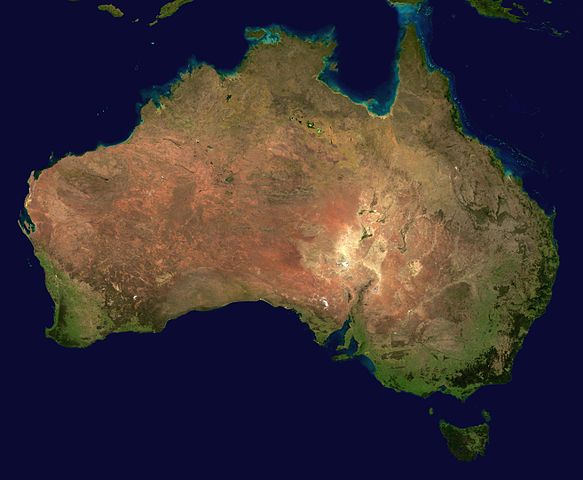- 4-minute read
- 24th March 2019
English Dialects: What Is Australian English?
Australian English is more than just an accent or a few Aussie phrases. But what does it involve exactly? And how does Australian English differ from other dialects? Let us explain.
What Is Australian English?
Sometimes shortened to ‘AuE’ or ‘en-AU’, Australian English is a set of English dialects spoken and written in Australia. It has been recognised as a distinct dialect since the early 19th century, by which time it had diverged from the British English spoken by the first colonists.

And since then, it has become one of the more unique English dialects. As well as a distinct accent, for instance, Australian English features many unique terms. Some of these are specific to the environment (e.g. ‘bush’ and ‘outback’). Many are slang terms, such as ‘fair dinkum’.
Other Australian words are terms we use for everyday items that have different names in other countries. For example, a ‘doona’ is a ‘duvet’ in British English and a ‘comforter’ in American English. We’ve also got words of Australian Aboriginal origin. A few of these have even spread beyond Australia, such as ‘boomerang’. But most are restricted to Australia.
Other English Dialects
As well as the unique vocabulary mentioned above, Australian English differs from other dialects in various ways. But the exact differences depend on the English dialect in question:
Find this useful?
Subscribe to our newsletter and get writing tips from our editors straight to your inbox.
- British English – Australian and British English have a lot in common, but they do differ in some ways. The main differences are related to vocabulary. However, British English also uses different spellings for some words, such as ‘encyclopaedia’ instead of ‘encyclopedia’. And it accepts spelling variants that Australian English does not, such as -ize endings in words like ‘organize’. There are minor grammatical differences, too. For example, British English sometimes uses plural verbs with collective nouns (e.g. saying ‘The team are playing’ rather than ‘The team is playing’).
- American English – Australian and American English differ quite a bit, especially in terms of spelling. This is because Australian spellings typically follow British English conventions, so the same differences apply. For instance, words like ‘colour’ and ‘centre’ become ‘color’ and ‘center’ in US English. There are also minor grammar and punctuation differences, such as whether to favour ‘single’ (AUS) or “double” (US) quote marks. However, Australian English does follow American English in using ‘program’ instead of ‘programme’.
- Canadian English – Canadian English is essentially a mix of British English and American English. As such, it shares some features with Australian English (e.g. the spellings ‘colour’ and ‘centre’), but it also differs in other ways (e.g. preferring -ize spellings of words like ‘realize’).
These differences are most pronounced in informal writing, which often uses dialect-specific slang. But you still need to be aware of them in formal academic and business writing.
Tips for Using Australian English in Your Writing
If you are writing for an Australian audience, keep the following tips in mind:
- Remember not to use slang terms in formal writing. For instance, you would not use the term ‘arvo’ instead of ‘afternoon’ in an essay.
- If you’re at university or working for a publisher in Australia, check your style guide for advice on Australian English.
- If you’re unsure whether a word is used in Australian English, you can check an Australian dictionary, such as the Macquarie Dictionary.
- When writing in Microsoft Word, set the spellchecker to Australian English by going to Review > Language > Set Proofing Language and selecting ‘English (Australia)’ from the list of available languages.
Finally, you can also have your work proofread by someone who knows Australian English. A native speaker will be able to spot issues you may miss otherwise, so it is always worthwhile.